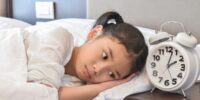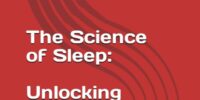What Is the Impact of Alcohol and Caffeine on Sleep

This article examines the impact of alcohol and caffeine on sleep.
It explores the effects of alcohol on sleep patterns and discusses how alcohol disrupts sleep quality.
Additionally, it investigates the relationship between caffeine and insomnia and explores the effect of alcohol and caffeine on REM sleep.
The article also provides tips for limiting alcohol and caffeine consumption before bed and promotes healthy sleep habits in the context of alcohol and caffeine.
Key Takeaways
- Both alcohol and caffeine disrupt sleep patterns and decrease sleep quality.
- Alcohol decreases time spent in REM sleep, while caffeine delays the onset and decreases the duration of REM sleep.
- Regular intake of caffeine contributes to daytime sleepiness and reliance on caffeine for energy.
- Establishing a regular sleep schedule, avoiding alcohol and caffeine in the evening, and practicing good sleep hygiene can help improve sleep quality.
The Effects of Alcohol on Sleep
The effects of alcohol on sleep are well-documented in scientific literature. Alcohol consumption can lead to disrupted sleep patterns and reduced sleep quality.
Alcohol’s impact on sleep architecture refers to the alterations it causes in the various stages of sleep, including the amount of time spent in each stage. Studies have shown that alcohol consumption can result in a decrease in rapid eye movement (REM) sleep. REM sleep is important for cognitive functioning and emotional regulation.
Additionally, alcohol’s effect on sleep latency refers to the time it takes for an individual to fall asleep after consuming alcohol. While alcohol may initially make individuals feel drowsy and help them fall asleep faster, it often leads to fragmented and restless sleep throughout the night.
Ultimately, alcohol’s impact on sleep can affect the overall quality of sleep obtained.
How Alcohol Disrupts Sleep Patterns
One factor that disrupts patterns of rest is the consumption of alcoholic beverages. Alcohol’s impact on sleep architecture can lead to various disruptions in the sleep cycle. One of the effects of alcohol on sleep is a decrease in sleep latency, which refers to the time it takes to fall asleep. However, this may be followed by an increase in wakefulness during the later stages of sleep.
Additionally, alcohol can disrupt the normal progression through sleep stages, leading to disturbances in the overall sleep architecture. These disruptions can result in reduced overall sleep quality and impaired cognitive functioning the next day. It is important to note that these effects may vary depending on the amount and timing of alcohol consumption, as well as individual differences in alcohol metabolism.
- Decrease in sleep latency
- Increase in wakefulness during later stages of sleep
- Disruptions in sleep architecture
- Reduced overall sleep quality
- Impaired cognitive functioning
Understanding Caffeine’s Impact on Sleep Quality
Caffeine’s sleep disruption and its effects on altered sleep patterns have been widely studied in the field of sleep research.
Numerous studies have found that caffeine consumption can lead to difficulties falling asleep, decreased total sleep time, and disrupted sleep architecture.
These effects are attributed to caffeine’s stimulating properties, which interfere with the natural sleep-wake cycle and suppress the onset of sleep.
Caffeine’s Sleep Disruption
Caffeine consumption has been found to disrupt sleep patterns. It is well-known for its stimulating effects on the central nervous system, which can interfere with the ability to fall asleep and stay asleep. Research has shown that caffeine’s effect on alertness can last for several hours after consumption, making it difficult for individuals to wind down and achieve restful sleep.
Moreover, regular caffeine intake can contribute to daytime sleepiness, as it can lead to a cycle of poor sleep quality and reliance on caffeine to combat fatigue. This means that even if individuals try to compensate for their lack of sleep by consuming more caffeine, it can actually worsen their sleep problems. This cycle can be particularly problematic for those who rely on caffeine to stay awake during the day, as it can perpetuate a cycle of disrupted sleep and daytime drowsiness.
Overall, it is important to be mindful of caffeine consumption and its potential impact on sleep. Limiting caffeine intake, especially in the afternoon and evening, can help promote better sleep quality and reduce daytime sleepiness. Additionally, finding alternative ways to boost energy and alertness, such as engaging in regular exercise or practicing good sleep hygiene, can also be beneficial for overall sleep health.
Altered Sleep Patterns With Caffeine
The consumption of caffeinated beverages has been associated with changes in sleep patterns, including difficulties in falling asleep and maintaining restful sleep. Caffeine’s effects on sleep have been widely studied, and it is well-established that caffeine reduces total sleep time, increases sleep latency, and decreases sleep efficiency.
These alterations in sleep patterns can have negative consequences on an individual’s overall well-being and cognitive functioning. The mechanism through which caffeine exerts its effects on sleep involves blocking adenosine receptors in the brain, which inhibits the sleep-promoting effects of adenosine. Additionally, the stimulating effects of caffeine can increase alertness and delay the onset of sleep.
It is important for individuals to be aware of the potential impact of caffeine on their sleep and consider reducing or avoiding its consumption, particularly in the evening, to promote healthy and restful sleep.
The Relationship Between Caffeine and Insomnia
One possible sentence could be: ‘The association between caffeine consumption and insomnia has been extensively investigated in scientific studies.’
Caffeine, a widely consumed psychoactive substance, has been found to have a complex relationship with sleep.
While caffeine is known for its stimulant effects, it can also lead to increased anxiety and restlessness, which can disrupt sleep patterns and contribute to insomnia.
Additionally, caffeine has addictive properties, making individuals more likely to consume it regularly and in larger amounts.
The stimulation of the central nervous system by caffeine can interfere with the natural sleep-wake cycle, making it difficult to fall asleep and stay asleep.
Furthermore, caffeine has a half-life of around 5-6 hours, meaning that its effects can persist in the body for a significant period of time, further impacting sleep quality.
How Alcohol and Caffeine Affect REM Sleep
The effects of both alcohol and caffeine on REM sleep have been the subject of significant research. Studies indicate that these substances can disrupt the normal patterns and duration of this important stage of sleep.
Alcohol consumption before sleep has been found to decrease the amount of time spent in REM sleep. This reduction in REM sleep can lead to a decrease in the restorative effects of this stage on cognitive function and emotional regulation. Additionally, alcohol can increase the frequency of awakenings during REM sleep, further disrupting the sleep cycle.
On the other hand, caffeine, a stimulant, has been shown to delay the onset of REM sleep and decrease its overall duration. This delay and decrease in REM sleep can result in fragmented sleep patterns and a decrease in the quality of sleep.
It is important to consider the impact of alcohol and caffeine on REM sleep when evaluating the potential consequences of their consumption on overall sleep quality and health.
Tips for Limiting Alcohol and Caffeine Consumption Before Bed
To limit the consumption of alcohol and caffeine before bed, individuals can implement strategies such as:
- Establishing a regular sleep schedule
- Creating a relaxing bedtime routine
These tips for reducing alcohol and caffeine intake before bedtime can have numerous benefits on sleep quality and overall health. Some of the benefits of avoiding alcohol and caffeine before sleep include:
- Improved sleep duration
- Enhanced sleep efficiency
- Decreased sleep disturbances
- Better sleep quality
Additionally, reducing alcohol and caffeine intake before bed can help individuals:
- Fall asleep faster
- Experience less daytime sleepiness
Other strategies to limit alcohol and caffeine consumption include:
- Avoiding the consumption of these substances several hours before bedtime
- Substituting them with healthier alternatives
- Seeking professional help if necessary.
Promoting Healthy Sleep Habits in the Context of Alcohol and Caffeine
This discussion will explore the impact of alcohol and caffeine on sleep, specifically focusing on alcohol-induced insomnia and caffeine-induced restlessness.
Alcohol consumption has been shown to disrupt the sleep cycle, leading to difficulties falling asleep and staying asleep throughout the night.
Similarly, caffeine consumption, particularly close to bedtime, can result in increased restlessness and decreased sleep quality.
Understanding the implications of alcohol and caffeine on sleep quality is essential for promoting healthy sleep habits and optimizing overall well-being.
Alcohol and Insomnia
Alcohol consumption has been found to exacerbate symptoms of insomnia. Research suggests that alcohol negatively affects sleep quality and can lead to increased difficulty falling asleep and maintaining sleep throughout the night. The impact of alcohol on sleep can be attributed to its effects on the sleep cycle, specifically the disruption of REM (rapid eye movement) sleep.
Additionally, alcohol acts as a sedative, initially promoting drowsiness but ultimately causing fragmented and restless sleep. Other factors that contribute to the negative impact of alcohol on sleep include increased snoring and sleep apnea.
It is important to note that while alcohol may initially induce sleep, it ultimately disrupts the natural sleep process and can lead to a variety of sleep disturbances.
- Alcohol disrupts REM sleep
- Fragmented and restless sleep
- Increased snoring and sleep apnea
- Initial sedative effects followed by sleep disruption
- Difficulty falling asleep and maintaining sleep
Caffeine and Restlessness
The consumption of caffeinated beverages has been associated with increased restlessness, potentially leading to difficulties in achieving a state of calm and relaxation. Caffeine is a stimulant that affects the central nervous system, and its effects on anxiety and sleep have been widely studied.
Research suggests that caffeine can increase anxiety symptoms in susceptible individuals, particularly at higher doses. Additionally, caffeine has been found to impact sleep latency, which refers to the time it takes to fall asleep. Studies have shown that consuming caffeine close to bedtime can prolong sleep latency, making it more difficult to initiate sleep. This can result in a decreased total sleep time and poorer sleep quality.
Therefore, individuals who experience restlessness or have difficulties achieving a state of calm and relaxation may benefit from reducing or avoiding the consumption of caffeinated beverages, especially in the evening hours.
Sleep Quality Implications
Research has shown that the consumption of caffeinated beverages in the evening hours can have negative implications for the quality of sleep experienced by individuals. The effects of caffeine on sleep are well-documented, with studies suggesting that it can delay the onset of sleep, reduce total sleep time, and increase wakefulness during the night. In addition to caffeine, alcohol consumption has also been found to disrupt sleep patterns. Alcohol can initially act as a sedative, promoting sleep onset, but it can also lead to fragmented and disrupted sleep later in the night.
Furthermore, both alcohol and caffeine have been found to affect the quality of deep sleep, which is important for restorative functions such as memory consolidation and immune system regulation. Considering the potential sleep deprivation caused by alcohol and the impact of caffeine on deep sleep, it is crucial to limit their consumption, particularly in the evening hours.
- Consumption of caffeine in the evening can negatively affect sleep quality.
- Caffeine can delay sleep onset, reduce total sleep time, and increase nighttime wakefulness.
- Alcohol consumption can disrupt sleep patterns, leading to fragmented and disrupted sleep.
- Both alcohol and caffeine have been found to impact the quality of deep sleep.
- Deep sleep is important for memory consolidation and immune system regulation.
Frequently Asked Questions
Can Alcohol and Caffeine Consumption Before Bed Lead to Sleep Disorders?
Consumption of alcohol and caffeine before bed can negatively impact sleep quality and contribute to the development of sleep disorders. The relationship between sleep disorders and alcohol/caffeine consumption has been widely studied.
Is There a Certain Amount of Alcohol or Caffeine That Is Safe to Consume Before Bedtime?
Safe consumption limits of alcohol and caffeine before bedtime are crucial to consider due to their potential effects on sleep quality. Understanding the specific quantities that can be safely consumed is important in mitigating any negative impact on sleep.
How Long Does It Take for the Effects of Alcohol and Caffeine to Wear off Before Sleep?
The duration and impact of alcohol and caffeine on sleep can vary. Both substances can disrupt sleep patterns and contribute to sleep disorders when consumed before bedtime. The time it takes for their effects to wear off before sleep can depend on various factors.
Are There Any Alternative Drinks or Substances That Can Help Promote Better Sleep?
Some alternative drinks and natural remedies may promote better sleep and alleviate insomnia. These options could provide healthier alternatives to alcohol and caffeine, which have been shown to negatively impact sleep quality.
Does the Timing of Alcohol and Caffeine Consumption Throughout the Day Have an Impact on Sleep Quality?
The timing of alcohol and caffeine consumption throughout the day can have an impact on sleep quality. It is important to consider the effects of these substances on sleep duration and sleep architecture when assessing their influence on sleep quality.









